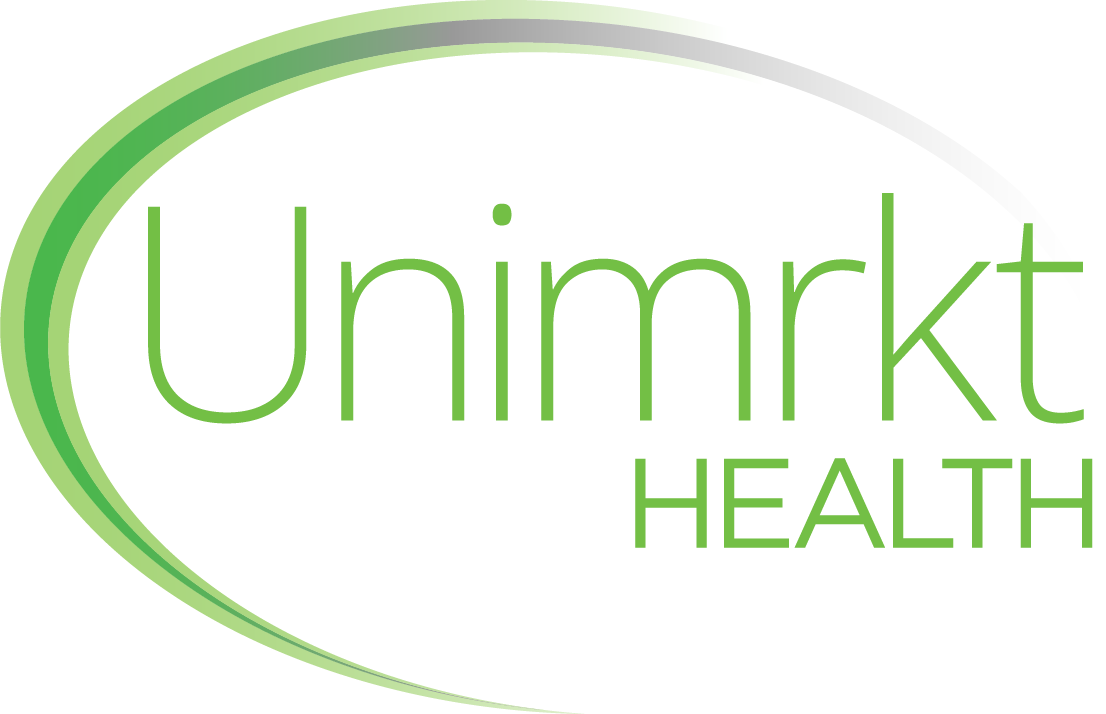Importance of Decision Makers in Healthcare Management and How Healthcare Consulting Can Help
- Unimrkt Healthcare » Blog » Importance of Decision Makers in Healthcare Management and How Healthcare Consulting Can Help
As the healthcare industry grapples with unprecedented challenges, ranging from technological advancements to shifting regulatory landscapes, the need for astute decision-makers becomes increasingly vital. In this blog, we will explore the intrinsic importance of decision-makers in healthcare management and delve into the transformative impact of healthcare consulting. By seamlessly integrating health services research, doctor interviews, and research in nursing and health, decision-makers gain invaluable data into the intricacies of the medical industry. Come, let us explore how strategic decision-making, coupled with the expertise of healthcare consulting, can pave the way for a successful healthcare journey.
The Role of Decision Makers in Healthcare Management
Research in the medical field forms the bedrock upon which healthcare companies base their operative decisions. Armed with data derived from comprehensive healthcare panels and guided by innovative health strategies and solutions, decision-makers play a pivotal role in steering healthcare organizations toward optimal outcomes. They are tasked with the critical responsibility of charting the course amidst the ever-evolving landscape of medical science, technological advancements, and evolving patient needs. It is the combination of data-driven decision-making and visionary strategies that enable healthcare leaders to make smart decisions that can help steer their organizations toward success. For such successful decision-making capabilities, you need data in hand, and that’s where healthcare market research services come into play. In essence, healthcare research is like the engine that helps organizations provide excellent care to patients and find new ways to make healthcare better and long-lasting. Backed by data, decision-makers in the healthcare sector can thus not only ensure the delivery of high-quality care but also foster innovation and sustainability.
Challenges in Healthcare Decision-Making
Healthcare decision-making comes with a set of unique challenges that healthcare professionals and organizations often face. These challenges can have far-reaching implications for patient care, resource allocation, and overall healthcare system effectiveness. Navigating these challenges requires a combination of expertise, data-driven approaches, and efficient collaboration among stakeholders. Furthermore, it also requires a commitment to improving patient outcomes while managing costs and resources effectively. Some key challenges include:
Complexity of Healthcare Systems
Healthcare systems are intricate and involve numerous stakeholders, including patients, providers, insurers, and government agencies. Decision-makers must navigate this complexity while making choices that affect patient outcomes and costs.
Limited Resources
Healthcare resources such as funding, staff, and equipment are typically limited. Decision-makers must allocate these resources efficiently to provide the best possible care to patients while staying within budget constraints.
Rapid Technological Advancements
Healthcare technology is constantly evolving, offering new diagnostic and treatment options. Decision-makers must stay updated and make choices about which technologies to adopt and integrate into their healthcare systems.
Regulatory and Legal Compliance
Healthcare is heavily regulated, and decision-makers must ensure that their organizations comply with all relevant laws and regulations. Non-compliance can result in legal issues and financial penalties.
Data Management and Privacy
Healthcare generates vast amounts of sensitive patient data. Decision-makers must ensure the security and privacy of this data while using it to improve patient care and make informed decisions.
Patient-Centered Care
The shift towards patient-centered care requires decision-makers to consider individual patient preferences and needs when making decisions. This can be challenging in a one-size-fits-all healthcare system.
Healthcare Disparities
Addressing disparities in healthcare access and outcomes is a significant challenge. Decision-makers must work towards equitable care for all populations, which may require specific strategies and resources.
Public Health Emergencies
Events like pandemics or natural disasters can strain healthcare systems. Decision-makers must have contingency plans and the ability to adapt rapidly to unforeseen circumstances.
The Impact of Effective Decision-Making in Healthcare
Effective decision-making in healthcare can have a profound impact on patients, healthcare organizations, and the entire healthcare system. Here are some key ways in which it makes a difference:
Improved Patient Outcomes
When healthcare decisions are well-informed and evidence-based, patients receive better care. This leads to improved health outcomes, reduced complications, and enhanced quality of life for individuals.
Optimal Resource Allocation
Effective decision-making helps healthcare organizations allocate their limited resources—such as funding, staff, and equipment—efficiently. This leads to cost savings and ensures that resources are directed where they are needed most.
Enhanced Patient Experience
Decision-makers who prioritize patient-centered care create a more positive experience for patients. This includes considering patient preferences, values, and involvement in care decisions, leading to greater satisfaction and trust.
Innovation and Technology Integration
Strategic decisions about adopting and integrating new healthcare technologies and innovations can lead to more accurate diagnoses, advanced treatment options, and improved efficiency in healthcare delivery.
Cost Containment
Decision-makers who focus on cost-effective strategies can help control healthcare costs for patients and payers. This is crucial for making healthcare accessible and affordable for everyone.
Compliance and Risk Mitigation
Effective decision-making ensures that healthcare organizations adhere to regulations and ethical standards. This minimizes legal risks and reputational damage.
Health Equity
Decision-makers who address healthcare disparities and promote equitable care contribute to a fairer healthcare system where all individuals, regardless of their background, have equal access to high-quality care.
Public Health Impact
During public health emergencies and outbreaks, timely and well-informed decisions can help mitigate the spread of diseases, save lives, and protect communities.
Organizational Success
Effective decision-making is crucial for the overall success and sustainability of healthcare organizations. It can lead to improved financial performance, employee satisfaction, and stakeholder trust.
Continual Improvement
Decision-makers who embrace a culture of continuous improvement can adapt to evolving healthcare trends and challenges. This ensures that healthcare organizations remain resilient and responsive to changing patient needs and market dynamics.
How Healthcare Consulting Can Assist Decision Makers
Here’s how healthcare consulting can provide valuable support to decision-makers:
Expertise and Data
Healthcare consultants bring specialized knowledge and expertise to the table. They have a deep understanding of the healthcare industry, including current trends, regulations, and best practices. Decision-makers can leverage this expertise to make informed choices.
Data Analysis
Healthcare consultants excel in data analysis and interpretation. They can help decision-makers collect complex healthcare data, which can then be used to identify trends, and drive a data-driven approach that enables evidence-based decision-making.
Strategic Planning
Consultants assist decision-makers in developing comprehensive strategic plans. These plans align with the organization’s goals and objectives, ensuring that decisions are in line with the long-term vision of the healthcare organization.
Cost Management
Healthcare consulting often focuses on optimizing costs while maintaining or improving the quality of care. Decision-makers can benefit from cost-saving strategies and recommendations, helping them allocate resources efficiently.
Technology Integration
Consultants are well-versed in healthcare technology solutions. They can guide decision-makers in selecting and implementing the right technology to streamline operations, enhance patient care, and improve overall efficiency.
Performance Improvement
Consultants help identify areas where healthcare organizations can improve performance. They work with decision-makers to develop and implement strategies for enhancing patient outcomes, reducing errors, and increasing efficiency.
Compliance and Risk Management
Healthcare consultants stay up-to-date with ever-changing healthcare regulations. They assist decision-makers in ensuring compliance with these regulations, reducing legal and financial risks for the organization.
Market Research
Healthcare consulting professionals conduct market research to help decision-makers understand their competitive landscape. This information assists in making informed decisions about service expansion, marketing strategies, and market positioning.
Final Word
Decision-makers are the linchpin of effective healthcare management, responsible for steering organizations toward better patient outcomes and sustainable practices. In an ever-evolving healthcare landscape, the collaboration between decision-makers and healthcare consulting firms becomes increasingly indispensable, ensuring that the industry continues to innovate, adapt, and provide the highest quality care to those it serves. When looking to hire a reputable healthcare consulting firm with unmatched experience, look no further than Unimrkt Healthcare. We employ proven research techniques to ensure your health market research campaign is successful. To learn more about our services, call +91-124-424-5210, +91-9870-377-557, or email sales@unimrkthealth.com. You may also fill out our contact form and our experts will contact you at the earliest.
Recent Posts
- 10 Medical Online Survey Mistakes You Must Leave Behind in 2025
- How Qualitative Healthcare Research Can Accelerate Ethical AI Adoption
- Trust as a Growth Strategy: What Healthcare Leaders Can Learn From Business Market Analysis
- Mapping the Healthcare Value Chain: A Market Research Perspective
- Decoding Emotional Triggers in Treatment Choices: A Qualitative Approach
Archives
Quick Enquiry
Customer Service, We Make it Better
Related Posts:
Let's Connect
Please, fill in the form to get in touch!



